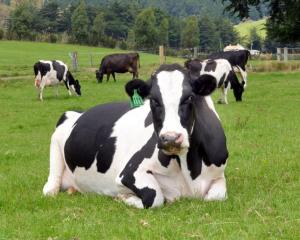
Times were tough and farmers were forced off farms that had been in their families for generations. However, the removal of subsidies acted as catalyst for a greater focus on business enterprise, productivity and profitability which means our farmers are some of the best in the world.
These days, New Zealand farmers are proud of their commercial savvy and ability to farm independently and profitably. This independence allows them to make decisions in an agile manner - important for riding commodity fluctuations, climate variation and the sometimes lacklustre performance of processing companies like Fonterra - much of which is outside of farmer control.
People who do not farm often underestimate the need for agility and continual decision-making.
Should a sheep and beef farmer sell their lambs early for a lower price to protect themselves from drought, or will the rain come? Should a dairy farmer enter into a new winter grazing arrangement with an unknown partner? Should a horticulturist invest in frost-fighting technology which will take years to pay off in a year in which they have been hammered by hail?
I write this column from Dublin, where I am at the halfway point of a New Zealand Agritech mission to the United Kingdom and Ireland. I am following the release of the New Zealand Government's freshwater agenda and the farming community's response. Before I left, a colleague said to me what a great time to be in the UK, given the throes of Brexit, but to be honest, I am none the wiser regards the ramifications of Brexit, other than understanding that British farmers are very nervous because European subsidies make up a significant proportion of farmer incomes, sometimes up to 60%. What does the future look like for them?
Groups in the United Kingdom are looking to New Zealand as to how they might make farmers more profitable under a reduced subsidy scheme. In parallel, environmental management has long been an area of focus for British farmers, driven by subsidy incentives and I find myself trying to understand how these incentives work and what might be a "best of both" situation for both countries.
I had been conditioned to view subsidies negatively, until a German colleague, Gertje Petersen, questioned my closed view. In her view, subsidies allow farmers to provide a much-needed service of environmental management and food provision in a more balanced manner.
British farmers are paid to develop wildlife corridors and to reduce intensification in certain areas. How might we support our farmers to do more of the same without bringing back subsidies?
There are leading farming groups in New Zealand which have taken on such challenges and created positive action. Check out the Pomahaka water catchment group in South Otago httppublic://story/2019/09/Anna_CAMPBELL_hs.jpgpwcg.co.nz/ (80 farmers and business groups) as an exemplar of what can be achieved.
How do we incentivise these groups to expand and move faster?
Time away from home is time for me to question my own philosophies, to connect with agri-innovators, to think and to learn.
I have seen fabulous initiatives such as the "Hands Free Hectare" at Harper Adams University and I have much to share with you in the coming weeks, but as I compare farming systems, I am overwhelmed with a need to ask the New Zealand public to think about what our farmers are competing with and what we are asking of them.
I don't think direct-to-farmer subsidies are the answer for us, but scientific and financial investment, as well as moral support, are needed for New Zealand farmers to be the best that they can be and to remain competitive, innovative and engaged.
We need to be careful of the triggers we pull and the unintended consequences. Let's not cook the goose that has laid so many golden eggs.
- Anna Campbell is managing director of AbacusBio Ltd, a Dunedin based agri-technology company.












